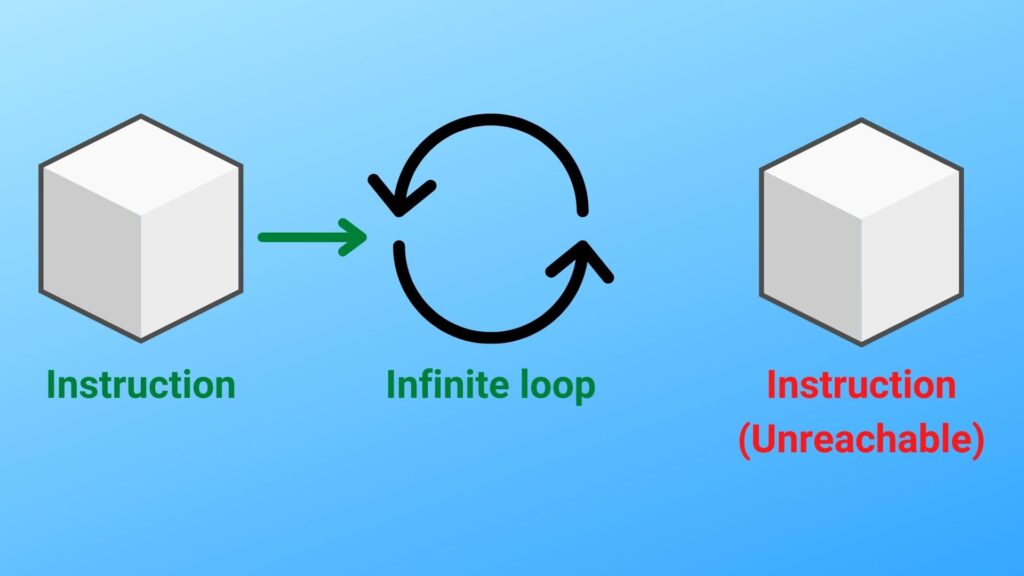If you want to make code for your website or app, you should not only consider what it takes to make it work. You should also think about how to make it more efficient and faster so that your customers will be more satisfied. Here are 6 ways to optimize your code so that it runs faster.
Table of Contents
- Make sure it’s free of errors and bugs
- Create functions for repetitive statements
- Use built-in functions as much as possible
- Review your variables and functions
- Make sure you break out of loops
- Make your code readable
1. Make Sure it’s Free of Errors and Bugs
Bugs can cause performance issues. For instance, they might induce errors that force users to reopen the program, execute more code than expected that causes the output to be delayed, or take up so many system resources that the app slows down. These all impair user experience, causing loss of visitors and revenue.
These bugs might seem easy to avoid by optimizing code from the beginning, but if you’re writing a program that has multiple files, each with thousands of lines of code, you may find bugs every day.
2. Create Functions for Repetitive Statements
If you have to use the same set or a similar set of statements more than once in your program, you should create a function. This doesn’t only make your code easier to read and modify, but it can also speed up your code because local variables inside functions are generally faster than global variables that are accessible from all over the program.
3. Use Built-in Functions As Much As Possible
Moreover, if you want to access a specific feature, ensure it’s not incorporated in built-in functions or libraries before making your function. These built-in functions are probably coded better than your best algorithm about that, so use them as much as possible to make your code more efficient and save time on building your own functions.
4. Review Your Variables and Functions
Remember that variables and functions are meant to be reused throughout the program, so if your program will not use the variable of function more than once in any circumstances, or if they’re too similar to others, consider removing them. For instance, if you’ve decided to remove a variable, you can do calculations on other variables to replace that unnecessary variable. Moreover, if you want to delete a function, you can modify a function’s parameters and change the statements that result in the execution of the function.
If some of your functions and variables don’t affect when removing them, even in an emergency, you can remove them without finding ways to replace them.
Even if all your variables and functions are necessary, you should review them. If you think they can be substantially simplified and still do the same thing to your code, do that immediately. For instance, you only have to declare one variable if the two variables are always exactly as far apart as each other in any circumstances. You can optimize your functions as well if you think the same thing can be achieved with simpler algorithms that involve fewer calculations.
5. Make Sure You Break out of Loops
If your program falls into a while-true loop, make sure you break out of it. Although your program may depend on the conditions to decide when to break out of the loop, it is crucial to exit it appropriately. If you don’t, your program will end up stuck executing the instructions and never proceed with the rest of the code or produce final outputs. If it does, the only way for the user to temporarily fix this problem is to restart the program, which may cause all his/her unsaved work on it to be lost.

Image created using Canva
6. Make Your Code Readable
Last but not least, you should make your code readable. It helps you write, comprehend, and edit your code. Imagine optimizing a file where characters are densely packed all over the screen without whitespaces or indents. That could make you confused, right? Well, you know about your code, but other people may not. Therefore, make sure you make your code concise and readable so that you or your peers or other developers can understand and improve it conveniently without having to start from scratch or be asked to clean your code.
Conclusion
Whenever you write an app or program about your website, make sure you make your code more efficient by focusing on these tips. You will attract more customers and lose fewer ones if your website is faster and performs better. If you want to learn more, you can visit the websites in the references below.
References and Credits
- (2020, August 18). 9 Techniques to Write Your Code Efficiently. Retrieved November 8, 2021, from https://patataeater.blogspot.com/2020/08/how-to-write-efficient-and-faster-code.html
- (2021, February 8). How To Make Your Code More Efficient. Retrieved November 8, 2021, from https://www.sololearn.com/blog/137
- Pralabh Saxena. (n.d.). How to Make Python Code Run Incredibly Fast – KDnuggets. Retrieved November 8, 2021, from https://www.kdnuggets.com/2021/06/make-python-code-run-incredibly-fast.html

